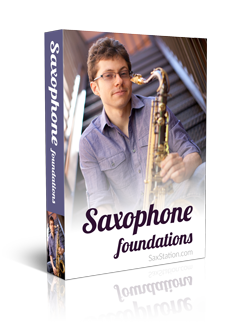 In 1925, Russian grandmaster Alexander Alekhine played twenty eight games of chess at the same time while blindfolded.
In 1925, Russian grandmaster Alexander Alekhine played twenty eight games of chess at the same time while blindfolded.
He won twenty two games, drew three, and lost three.
Did Dr. Xavier from the X-Men train him? Was he bitten by a radioactive rook?
Probably not. The X-Men weren’t around yet.
Did he know how to play chess when he was born?
No.
Some people argue that natural talent is a very large part of success in sports, art, music, etc. And it plays some role, but not nearly as big of a role as dedication and practice, in my opinion.
Basically what happened was he spent thousands of hours learning and practicing the game of chess. He could ‘speak’ the language of chess. He saw combinations of moves in chess, similar in the way we piece letters into words. He could ‘see into the future’ the results of what would happen. And he could do all this very quickly.
Creating order in his mind of many pieces of information and ideas.
Master saxophone players do the same thing and it takes time and dedication to get there.
On saxophone, we take all the dimensions of saxophone and put them together. And we don’t even philosophize between playing phrases (generally).
And it takes a lot of time to be able to play all the dimensions of saxophone fluently.
Think about this……
Who sounds better, the sax player with ‘natural talent’ who is just starting or the sax player who has put in 10,000 hours of dedicated and focused practice?
Your embouchure doesn’t develop overnight. The control in your throat doesn’t develop overnight. Creating sound through a saxophone and manipulating the keys and making music isn’t something anyone is born knowing how to do.
Charlie Parker Parker and John Coltrane practiced a lot. And they both took saxophone lessons.
Sonny Rollins and more locally (for me) George Young continue to practice an insane amount of hours even in their later years.
All great saxophone players practice a lot. They also listen a lot and have guidance.
So if you want to sound great on saxophone, practice saxophone and practice it effectively. And enjoy the path of getting there, because the path never really ends. Have fun with the music.
What do you think? Leave a comment!



Some musicians are born with natural musical abilities, as soon as they are exposed to an instrument, they can master it in months.
For me and others like me, We need to study, practice years and countless hours to achieve similar results. It seem like the gifted are on an express track and we are in the local track, but who cares, do your best and practice!
I don’t think that’s true Mel. It just looks that way on the surface sometimes. What musicians do you think that was the case for?
I think it takes about 10,000 hours for anyone to master an instrument. Some musicians just get those hours packed into less years. And if they’re much better than people their age, it seems like something amazing is happening.
Even Mozart didn’t produce anything amazing in the early years, he developed over time.
I don’t know of any musician who mastered their instrument, music, and style in months.
I wasn’t practicing five hours a day when I was 11 years old and jamming with the best musicians in the world at the same time. Nor was I living in New Orleans with awesome musicians all over the neighborhood. It has to do with your situation and your drive to play. I wasn’t in a bad situation musically, but it wasn’t my focus in life. Even if it is, it still takes a lot of time. You just don’t see all the time that people practice.
Wayne Gretsky said, “I wasn’t naturally gifted in terms of size and speed; everything I did in hockey I worked for.” and, “The highest compliment that you can pay me is to say that I worked hard every day. . . . That’s how I came to know where the puck was going before it even got there.”
Neal, I really agree with you, and I don’t even play an instrument. My experience is with years and years of Toastmasters. At a conference, a man who’d placed third in the International Speech Contest (a huge accomplishment) said that people who hear him speak always say, “You’re such a natural.”
He’d say, “Do you know what it takes to become a natural? Practice, practice, practice!”
Hey Madeleine,
Thanks. I think that will be what most masters of anything will tell you. But the ‘natural talent’ belief persists. I think it’s much easier to play it off as people being naturally better at something, almost to feel better about ourselves.
-Neal
I think you are right Neal.
I took Han Mu Do from a Master. One day someone asked him how he made it look so easy. He said “If you do it 40 years, it will look easy for you too!”
Oh I’m taking my first lesson later today. I’ll let you know how it goes Neal.
Keep rocking!
Hey Tim,
Thanks. This is definitely a question that is debated by some people.
Hope your lesson goes well.
-Neal
you are right Neal ..
practice make perfect …i believe this ..because you don’t wake one morning and strart to sound like grover waschinton ..when i started, i didn’t knew nothing ,even reading notes ..and now people listen to me, i maybe not there yet, but i’m developng my skills throug practicing …so practice for life
Guys, how do you explain a child prodigy? They learn fast and early on can play beautifully. Even after 1 year of practice, they sound great, nowhere near me, even after 4 years.
‘Child prodigies’ often have parents who push/encourage them to practice a lot. If you’re playing many hours each day, you’ll sound good quickly. They also have guidance. How much do you practice each day Mel?
The answer would be “not enough” for me.
Maybe what I’m trying to get at is, that some people learn faster than others, and that is why they seem more “talented”!
Hey Mel,
Probably most sax players don’t practice a ton of hours in a day, but professional players often do.
There is some truth in what you’re saying. But I think the amount you practice is a big factor in how fast you can progress.
If you are completely comfortable with the major scale in, let’s say C#, and you’re learning a melody that’s in the key of C#, you’ll pick it up much faster than someone who struggles with playing the major scale comfortably.
Some sax players can get more done in 15 minutes of practice than another would do in three hours. If your practice time is focused and deliberate, you spend time on the right things and you’re practicing on a consistent basis with enough time to build up a foundation, then it will be much more effective.
Honestly, I think practice is the biggest factor in being great at anything. Though it’s not the only factor.
Hi!
Many hours of practice have no substitute indeed. But its a possibility some may have more calmness in their minds for discerning musical patterns than others. Another person could have more calmness for going through corporate balance sheets. If you are Buddhist, then this legacy of ‘karma’ can be accessed in future – in the new life, so to say.
So, its not just practicing for huge number of hours that will help, one needs to genuinely grow wider and deeper in the labyrinths of one’s own being, to be able to apprehend the moments of true notes, tones and harmonies. I feel it is a soulful process and needs a lot of hard labor. its also very humbling!
Hi im a 14 year old alto sax player (freshman) and, not trying to sound arrogant or anything, but im a lot better than the senior and junior alto sax players in my rehearsing section, and i seriously doubt that they practice less than i do… i pretty much only play my sax at school.. so could anyone explain why im able to play a lot quicker and with better tone quality?
Once again im not trying to sound arrogant…just stating facts…
How long have you been playing? High school music students aren’t necessarily always going to spend many hours practicing.
One kid who went to school with me started playing saxophone at least five years before me, of course he sounded better throughout middle school and high school.
Could be many factors actually. Have any musicians in your family? Did you sing when you were younger?
Things come quicker to certain people, but real greatness in anything requires a lot of practice.
Neal:
I entirely agree you need the effort and
swetting like in any other discipline,practice and lots of work and
dedication produce a master. Nothing comes from heaven (except pennies), and in what concerns to the saxophone you will never stop learning, because most of the time or always there is something new to learn. Course
I will enroll in the Foundations course.
Thanks and regards to the guys of the
tribe, I wish to be soon part of it
Okey. No bothering you anymore.
Pascual Cuauhtemoc
Hey Pascual,
Thanks, looking forward to helping you.
-Neal
Playing the horn is not that simple for me.l am getting better with practice. With help of a trombone man.
I started out with the Trumpet which didn’t work out well at all. My lips got chapped all the time and whenever I played any high notes, it felt like my brain was going to shoot out the back of my head. Then I went to Clarinet. That was OK. Then onto Sax, all within months of each other. It felt right, it was fun, it fit well, and I knew that it was what I wanted to do. I knew that I had the capacity to do this. Where this capacity comes from, I don’t know. But if I had spent twice as much time practicing Trumpet as I did Sax, I wouldn’t be half as good. I’m fortunate to have been introduced to the instrument that worked out for me early on rather than spending countless hours on one that wasn’t going to.
I knew a guy once in college who played Alto since grammar school. Practiced all the time, but just couldn’t quite get it. I left the area for a couple of years, came back, and caught up with him. He had given up the Sax, grew his hair out and was playing the Electric Bass. Quite effectively I might add. Well done.
I too will agree however, that once the right instrument is in your hands, determination, discipline, dedication, and excellence should become the forefront of your vocabulary. There’s only one way this is going to happen. I read an interview somewhere along time ago by one of the Masters who said, “Listen to everything you can get your hands on every chance you get, and 10x more than that, PRACTICE!”
Consider the guy who sits down at a Piano and reads middle Bb down in Bass Clef and middle C on up in Treble Clef all at the same time. It’s hard enough reading one line of music but to read two in different Clefs simultaneously? You know that didn’t happen over night.
Yes, its great to see natural talent in every part of life, but unfortunatly we are not all born with it, actually most of us are not. I think people with a natural talent just progress quicker, but they still need lessons.
Hey Yuri,
How are you defining natural talent? Thanks
Hi Neal,
I’m 86 years old and have been trying to learn my alto sax for this past year. I practice at least one hour per day…but I just don’ think I’m making any signifiant progress…even seem to be stagnating. Perhaps at this late stage it’s not worth the effort…however, since I am in good health I figure that if I could get to a level of some competence I’d still have many years of of enjoyment…..not sure what to do?